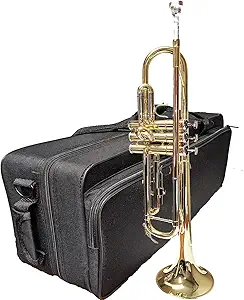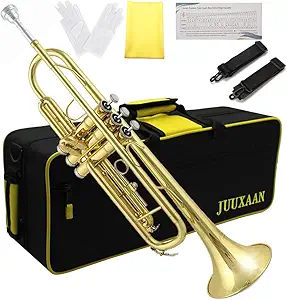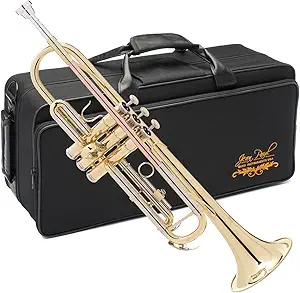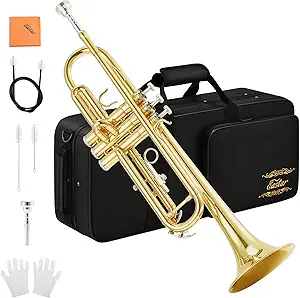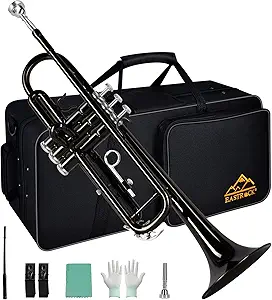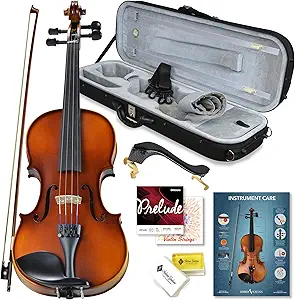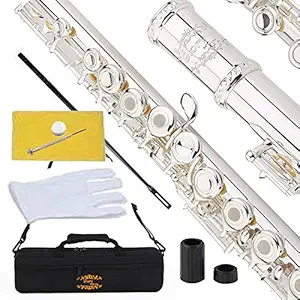The Ultimate Buying Guide for Trumpets: Beginner to Professional
Overview
The trumpet is a popular brass instrument known for its bright and powerful sound. Whether you're a beginner or a professional, choosing the right trumpet can be a daunting task. With so many brands, types, and features to consider, it's important to do your research before making a purchase. This guide will help you navigate the world of trumpets and find the perfect instrument for your needs.
Types
There are three main types of trumpets: beginner, intermediate, and professional.
1. Beginner trumpets are designed for those who are just starting out. They are typically made of less expensive materials and have fewer features than intermediate or professional models. Beginner trumpets are a great option for students or hobbyists who are not yet committed to playing at an advanced level.
2. Intermediate trumpets are designed for players who have moved beyond the beginner stage but are not yet ready for a professional model. They are typically made of higher-quality materials and have more advanced features, such as a larger bore or a reverse lead pipe.
3. Professional trumpets are designed for advanced players who require the highest level of quality and performance. They are typically made of the finest materials and have the most advanced features, such as a one-piece bell or a custom lead pipe.
Key Considerations
When choosing a trumpet, there are several key considerations to keep in mind:
1. Skill level: Make sure you choose a trumpet that is appropriate for your skill level.
2. Material: Trumpets can be made of various materials, including brass, silver, and gold. Consider your budget and playing needs when choosing a material.
3. Bore size: The bore size affects the sound and playability of the trumpet. Larger bores produce a more open and free-blowing sound, while smaller bores produce a more focused sound.
4. Bell size: The size of the bell affects the tone and projection of the trumpet. Larger bells produce a fuller and more resonant sound, while smaller bells produce a brighter and more focused sound.
Features
Here are some features to consider when choosing a trumpet:
1. Valves: Most trumpets have three valves, but some models have four. Look for smooth and responsive valves that are easy to play.
2. Lead pipe: The lead pipe is the first part of the trumpet that air flows through. Look for a lead pipe that is free-blowing and responsive.
3. Mouthpiece: The mouthpiece affects the tone and playability of the trumpet. Consider trying out different mouthpieces to find the one that works best for you.
Prices
Trumpets can range in price from a few hundred dollars to several thousand dollars. Beginner models typically cost between $200 and $500, while intermediate models can cost between $500 and $1,500. Professional models can cost $1,500 or more.
Tips
Here are some tips to help you choose the right trumpet:
1. Try before you buy: Always try out a trumpet before making a purchase to ensure it feels comfortable and sounds good.
2. Consider renting: If you're a beginner, consider renting a trumpet before buying one. This will allow you to try out different models without committing to a purchase.
3. Research brands: Do your research on different trumpet brands to find one that is reputable and produces high-quality instruments.
FAQs
Q: How long does a trumpet last?
A: With proper maintenance, a trumpet can last for many years.
Q: Can I play a professional trumpet as a beginner?
A: While it's possible to play a professional trumpet as a beginner, it's generally not recommended. Beginner trumpets are designed to be easier to play and more forgiving for new players.
Q: Should I buy a used trumpet?
A: Used trumpets can be a good option if you're on a budget, but make sure to inspect the instrument carefully before making a purchase.
Q: Do I need to clean my trumpet?
A: Yes, regular cleaning and maintenance is important to keep your trumpet in good condition and ensure it plays well.
Conclusion
In conclusion, choosing the right trumpet can be a challenge, but with the right information and guidance, you can find the perfect instrument for your needs. Keep in mind your skill level, material, bore size, bell size, and features when making your decision. And don't forget to try out different models before making a purchase!

